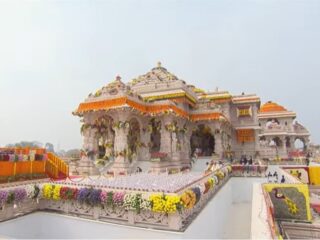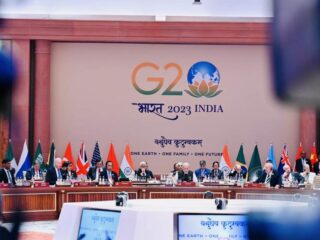Asghar Ali Engineer
(Secular Perspective May 1-15, 2012)
In view of what is going on in Gujarat where victims have been denied justice for more than 10 years, a debate has started that one should forgive and forget and march forward and engage oneself in economic development which is taking place there. How long the victims will keep on wailing over what happened in 2002, however disastrous it might have been. Sometime ago Maulana Vastanvi who runs several madrasas and other high level secular educational institutions also expressed similar views and advised Muslims to join the developmental stream in Gujarat and benefit from it.
It is, in my view, very important debate and one must understand all its implications thoroughly well. It has both moral and legal implications quite serious in nature. At one level it might have moral appeal that one should forgive the killers of Muslims in Gujarat and forget the whole incident. But at another level, one may argue, it has equally serious legal and constitutional implications.
First let us understand the difference between forgiving and forgetting. We often use the two words together and in one breath. However, there is significant difference between the two. One belongs to moral category (forgiving) and the other to psychological category. It is easier to forgive (though not so easy for those who seek revenge) but much more difficult to forget.
Genocide like Gujarat was traumatic in nature and it is nearly impossible to forget the trauma it caused to hundreds of victims in Gulbarg society, Naroda Patia and other parts of Ahmedabad and North and Central Gujarat. There have been several incidents in which women were raped and brutally done to death in presence of close relatives or raped and her several relatives were killed in front of her eyes as in the case of Bilqis Begum.
Can such traumatic experiences be ever forgotten, however, hard one tries? Even ordinary rape incident is traumatic enough for a woman to forget, one during communal riots and accompanied with other barbarities, is much more so. Also one remembers selectively and also forgets selectively. It is psychologically selective process. What is remembered is helpful for psychological reasons as what is forgotten also plays a healthy role. Certain memories will make life a hellish experience and is thus selectively forgotten and at other level remembering an incident plays a healthy role. So it is very complex process.
Forgiving, on the other hand, is a conscious moral decision which a person has to take overcoming lot of initial resistance from within. One is programmed by the nature to take revenge for wrong done to a human individual by another human individual. But then often seeking revenge leads to continued bloodbath and hence religious scriptures exhort us to forgive the enemy to break the cycle of violence. Bible even advises us to present another cheek, if one slaps us on one cheek – most difficult moral decision to make. The idea is to put the enemy to shame for his/her act of violence.
But forgiving has other conditions. Forgiving, as already pointed out, is moral in nature and is primarily meant for change of heart. It should succeed in bringing about reconciliation. If it fails to bring about reconciliation and change of heart on the part of the perpetrator, such forgiveness is infertile and wasted though morally it may still be desirable. And in case of Gujarat Chief Minister Shri Narendra Modi has not even once owned his responsibility even a head of state (if not as conscious perpetrator though it is alleged by many that he was).
Many had suggested that a Truth and Reconciliation Commission be set up on the South African model but the idea was outright rejected. That means there was no sign of repentance on the part of the perpetrators who are ideologically motivated and consider what they did with their victims in 2002 fully ‘justified’ by their Hindutva ideology. Thus even act of forgiveness on the part of victims does not move their hearts, let alone change their hearts.
Thus act of forgiveness will not achieve anything in Gujarat. They think their party is in power and hence no one can touch them. The Best Bakery and Bilqis Bano cases had to be tried outside the Gujarat state with the permission of the Supreme Court to get justice to the victims. Not only that these perpetrators keep on threatening their victims to withdraw their cases else they will not allow them to come back to their villages from where they had to flee during the Gujarat carnage.
Had these perpetrators shown any sign of repentance it would have been worth the while to forgive them and bring about reconciliation? Forgiveness, when the perpetrators show the signs of repentance and reconciliation, is good for the moral health of the victims who successfully resists the feeling of revenge. In a way it compensates the victim for the spiritual suffering undergone due to violence and humiliation inflicted on them.
Now let us take the question of justice. Question of justice is no less important. It is perhaps more important. The mighty and powerful should not get away with what they do in subjecting the weaker sections to oppression and violence. The whole basis of democracy is on rule of law. And when head of the state who is responsible for running the state on the basis of Constitution and maintain law and order not only fails to do so but justifies violence by citing Newton’s law of action and reaction publicly in the midst of violence, question of justice becomes even more important.
To strive for justice in a constitutional democracy is most essential for the health of democracy as well as for moral compensation for the victims. Justice is, though basically a legal category, is also from victims’ point of view, a moral category. If the perpetrators are subjected to the process of justice it brings about an inner satisfaction to the victims and their faith in the system becomes stronger.
However, if ends of justice are not met it may have serious implications for a constitutional democracy as indefinite wait for justice erodes the faith and credibility of the system and victims feel this system favours only the politically powerful. But for the repeated intervention of the Supreme Court, no justice would have been available to the victims in Gujarat.
What happened in Gulberga Society was utterly shocking. Ehsan Jaffri and 61 others were bunt alive and even dead bodies were maltreated and despite all efforts widow of Jafri has not got justice. The Special Investigation Team appointed by the Supreme Court gave ‘clean chit to Modi though Raju Ram Chandran, amicus curiae has clearly maintained that SIT has erred in giving clean chit to Modi.
Widow of Ehsan Jafri has yet not given up and her yeoman struggle clearly shows that after such grim tragedy justice is the only hope for the victims. Justice, not for revenge as revenge could have been taken in other ways also but justice for preventing such monstrosities in future and justice for relieving the survivors from the guilt that that did their best for those innocent killed in such barbaric manner.
And it is not in Gujarat alone. What happened in 1984 with innocent Sikhs is also equally shocking. The anti-Sikh riot culprits also have not been punished as they too are quite powerful. And what happened in Hashimpura in 1987 is even more shocking. More than forty young boys were pulled from their houses loaded on trucks, taken to a canal on the outskirts of Meerut. Shot and their bodies thrown into canal. It is more than 25 years and yet the culprit has not been punished.
One starts wondering whether there is rule of law in our democracy. Our administrative machinery and delay in dispensation of justice throws poor light on our functioning. What is worse our law and order machinery has been badly communalized and what is still worse is that it is known to our political rulers and yet no effective steps are being taken to cleanse the machinery. Some political parties openly provoke caste and communal violence and yet they go scot free.
Once justice is dispensed with honesty certainly politicians and policemen would be afraid of consequences and communal violence would not occur, at least not as it happened in Gujarat and elsewhere. It is for this reason that justice needs to be done otherwise our democratic functioning will further degenerate and law and order will become thing of the past.
Those who talk of forget and march ahead have to think seriously of the consequences of what they are saying. They may be giving such advice sincerely so that the community may engage itself in matters of education, development etc. But while this is important, efforts to get justice is even more important for reasons stated above. Efforts to get justice should not be under-rated in any case.
Above all obtaining justice has cathartic effect for victims who otherwise suffer constant mental pain.
——————————————-
Centre for Study of Society and Secularism
Mumbai.




